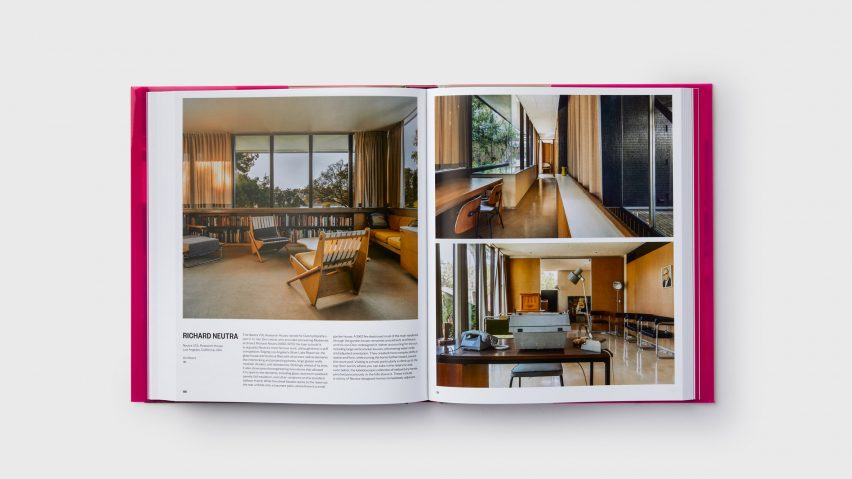
Life Meets Art book offers glimpse inside homes of leading creatives
Norman Foster's lofty dining room and the tactile living space of Faye Toogood are among the home interiors revealed in author Sam Lubell's new book, Life Meets Art.
Life Meets Art was curated by Lubell to "reveal a new side" to over 200 of the world's best-loved creatives by offering a glimpse inside their private spaces.
The homes of both notable and lesser-known architects, designers, musicians, poets and artists from across six different centuries and more than thirty countries are also shown – many for the first time.
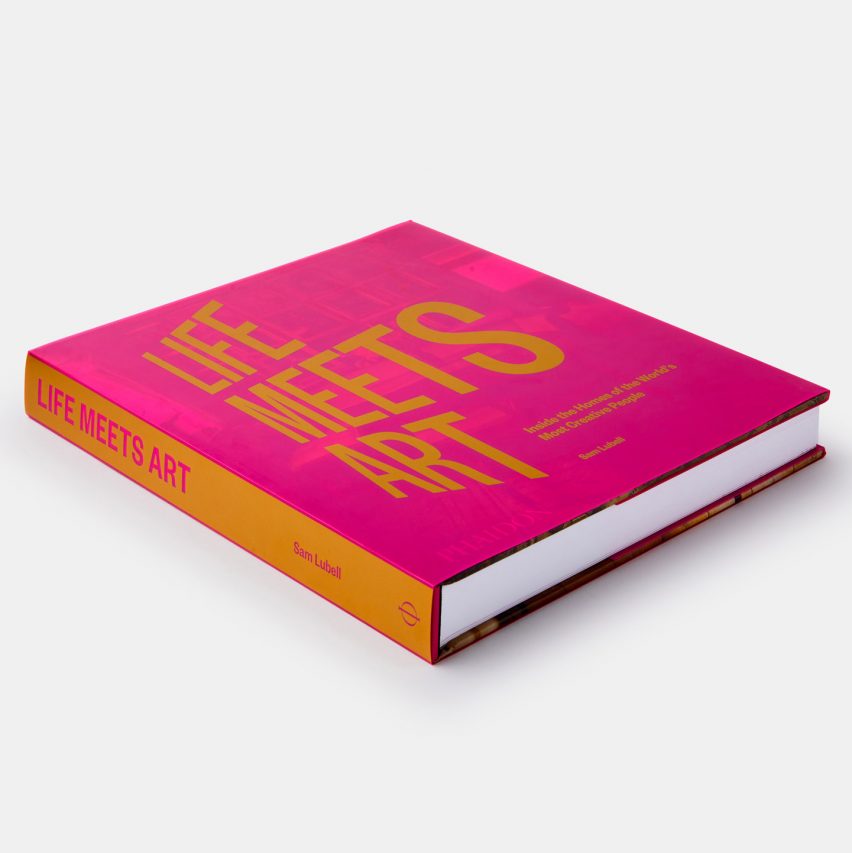
"It started with the people, the world's most talented, interesting, original, and in some cases strange artists, architects, writers, musicians, and more," Lubell told Dezeen.
"We knew we wanted to reveal a new side to these creatives, but we also wanted a lot of surprises, people and places that people might not have heard of."
"All the spaces are reflections of their owners"
According to Lubell, one of the most significant discoveries in the book is how "all the spaces are reflections of their owners".
"There's this phenomenal feedback loop between a creative person and their living space," he explained.
"Their experience inspires their art, which inspires their home, which inspires their art, which inspires their experience, and so on," he continued.
"Every square inch is fueled with a creative vision that manifests in entirely different ways. We learn how they've shaped their homes, and how their homes have shaped them. It's almost like peeking inside someone's body."
"The homes of designers have most influence on residential design trends"
Lubell believes Life Meets Art also encapsulates the extent of the influence that architects and designers have had on residential interiors.
According to Lubell, this "trend rolls through history", and is evident in homes ranging all the way from Charles Moore postmodernist dwelling in Texas to the minimalist London residence of John Pawson.
"I think the homes of architects and designers had the most influence on residential design trends," Lubell explained.
"This makes sense because that's their speciality, and in many cases, their homes were opportunities to experiment with and advocate for entirely new design philosophies."
Read on for Dezeen's pick of 10 designer homes in the book:
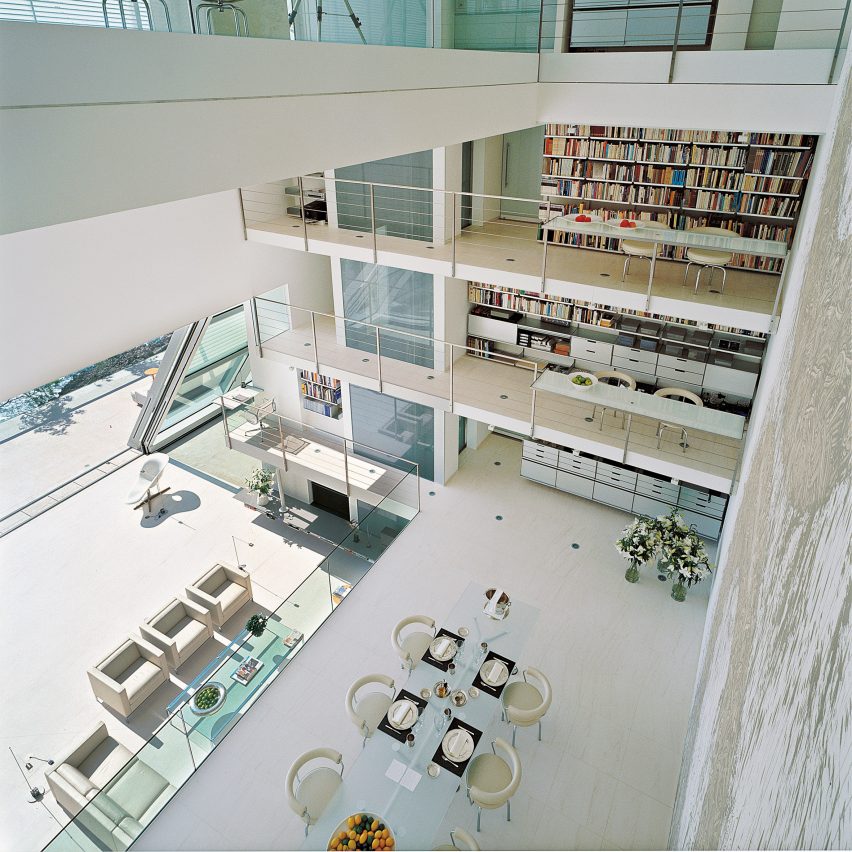
La Voile, France
One of the most notable contemporary architects to feature in the book is Pritzker Prize-winning architect Foster, with his La Voile residence that he created within a 1950s tower on the French Riviera.
The building was carved out to create an open, futuristic interior, with a series of balconies overlooking a white-walled dining room and a living room at its heart.
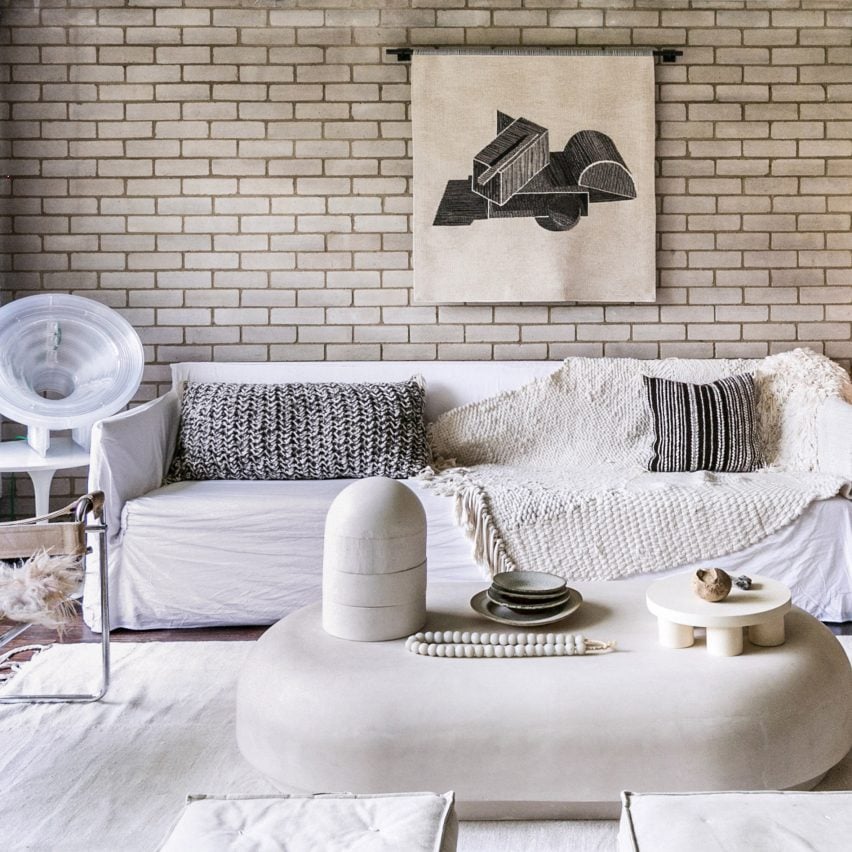
Toogood/Gibberd Residence, UK
Toogood's minimalist home, which she shares with Modern House co-founder Matt Gibberd, is located in a 1960s house in London by Swiss architect Walter Segal.
In her living room, pale bricks are used as a tactile backdrop to a number of pared-back furnishings that range from her own pill-shaped coffee table to playful geometric tapestries.
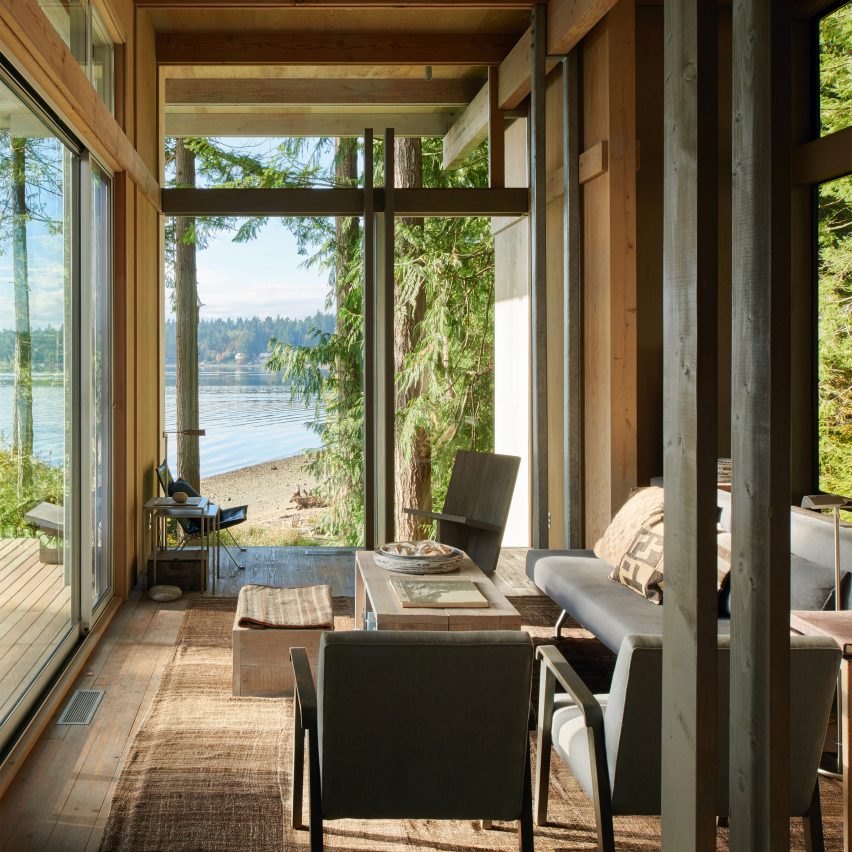
Cabin at Longbranch, USA
American architect Jim Olson created this stilted woodland house for himself at the age of 18 and remodelled it several times since.
The dwelling is characterised by its exposed-wood framework and large windows, captured here in this seating area, which is designed to retain focus on the home's natural surroundings.
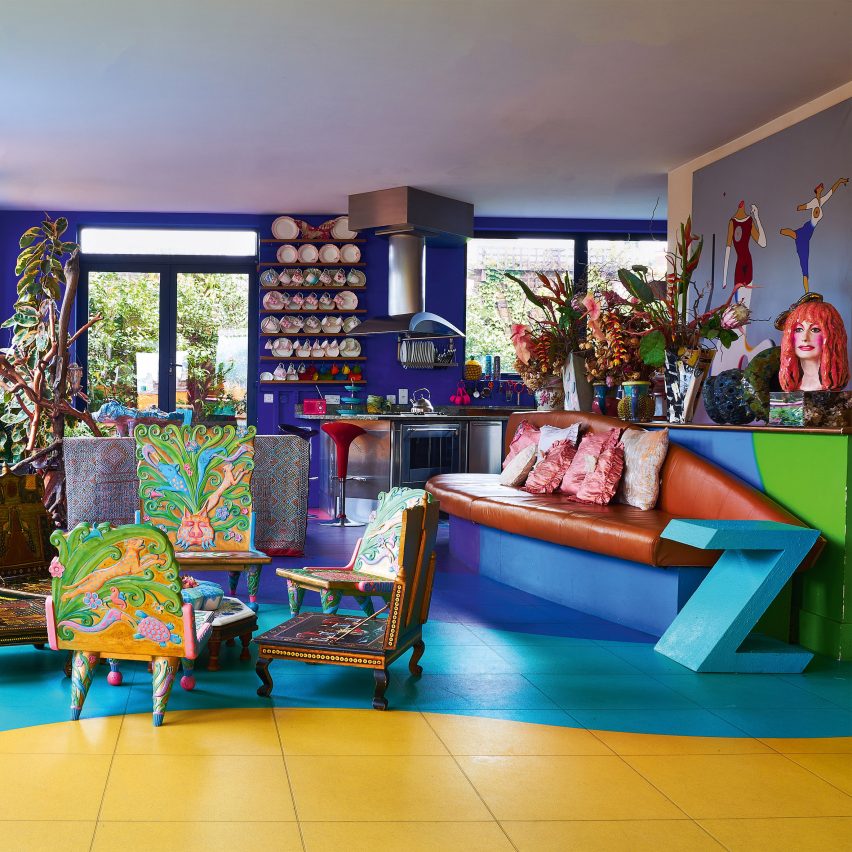
Rainbow Penthouse, UK
The vibrant and colourful home of Zandra Rhodes, aptly named Rainbow Penthouse, is an embodiment of the fashion designer's trademark style.
Located on top of London's Fashion and Textile Museum, which she also owns, the penthouse apartment is filled with colour-blocked surfaces and adorned with her personal art collection.
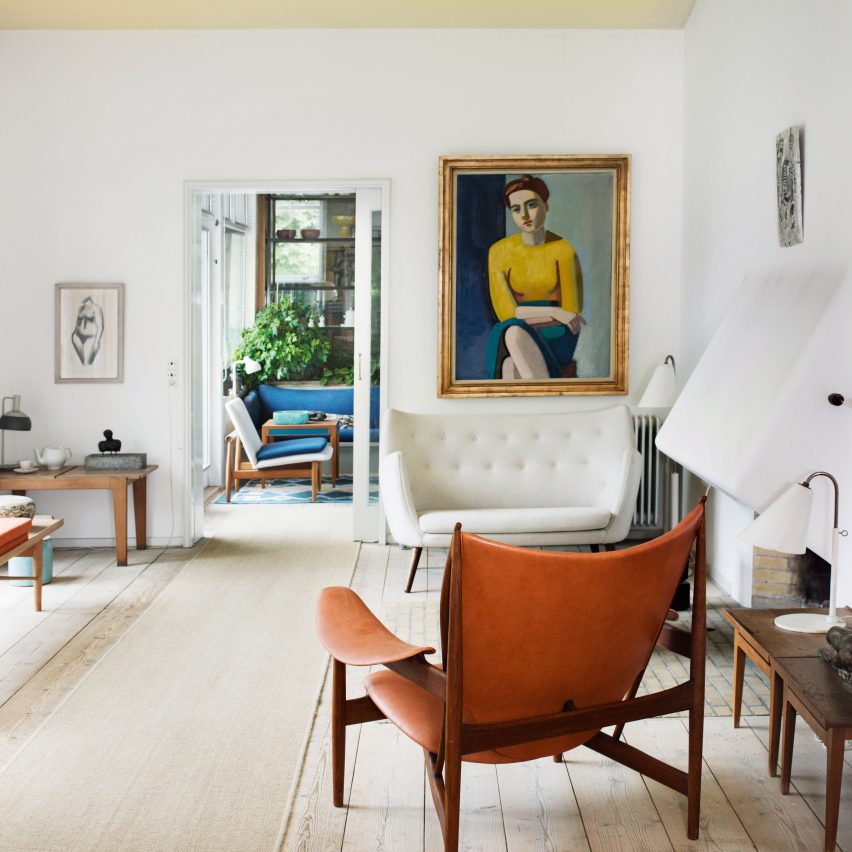
Finn Juhls Hus, Denmark
Modernist furniture and artwork fill every space of Finn Juhl's former home in Ordrup. This includes the living room, photographed above, within which his Chieftan lounge chair takes centre stage.
In the book, Lubell describes the dwelling as a "perfect example of how Juhl weighed interior design and architecture equally".
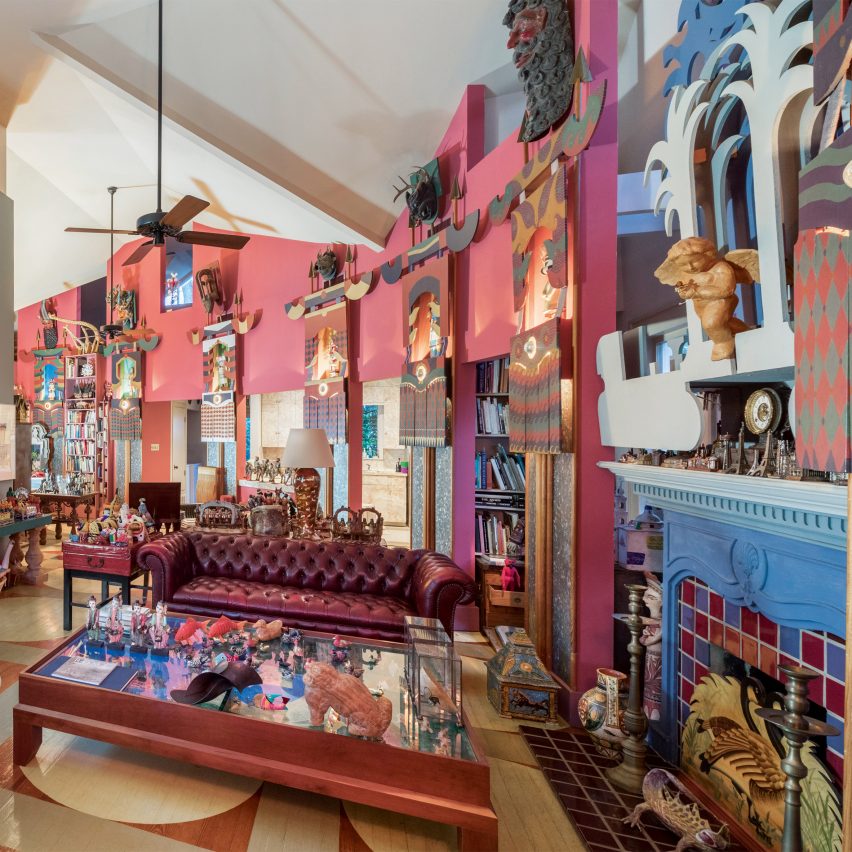
Moore/Andersson Compound, USA
The final home of late Charles Moore, which he created for himself was in Texas, perfectly captures the bold postmodernist style for which he is best known.
Life Meets Art spotlights the dwelling's main living area, which is crammed full with decorative pilasters, a collection of toys, colourful ceramics and statues of kachina dolls.
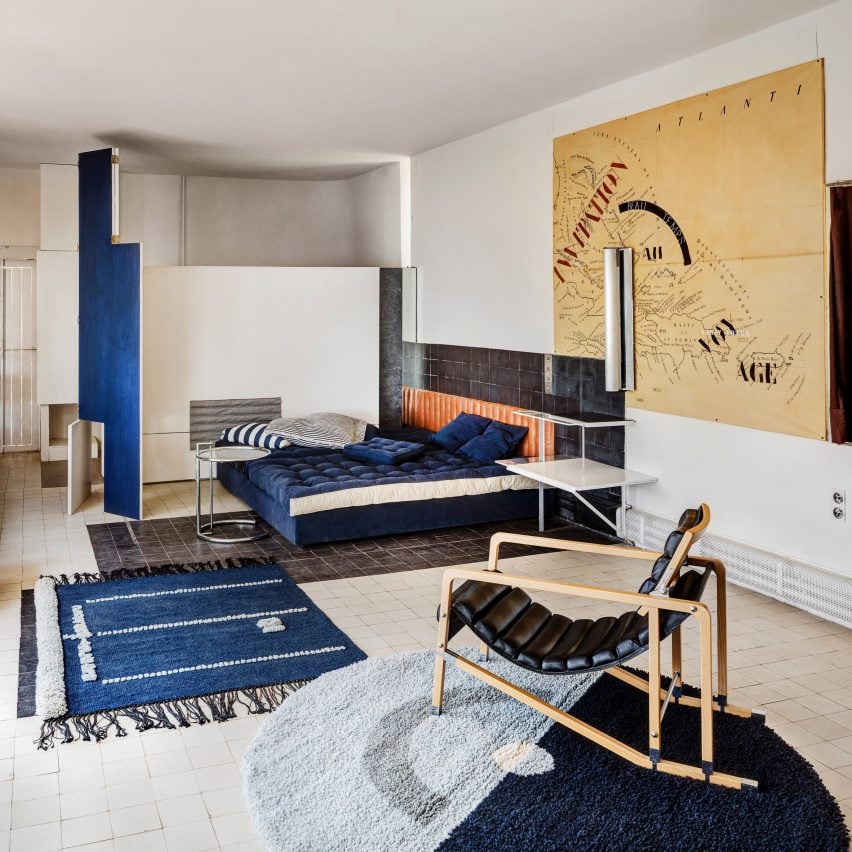
Villa E-1027, France
Furniture is the focus throughout Villa E-1027, the former clifftop home of modernist designer Eileen Gray that is now open to the public in Roquebrune-Cap-Martin.
Life Meets Art homes in on its main living room, which features her the iconic Bibendium chair and the glass and steel E-1027 side table.
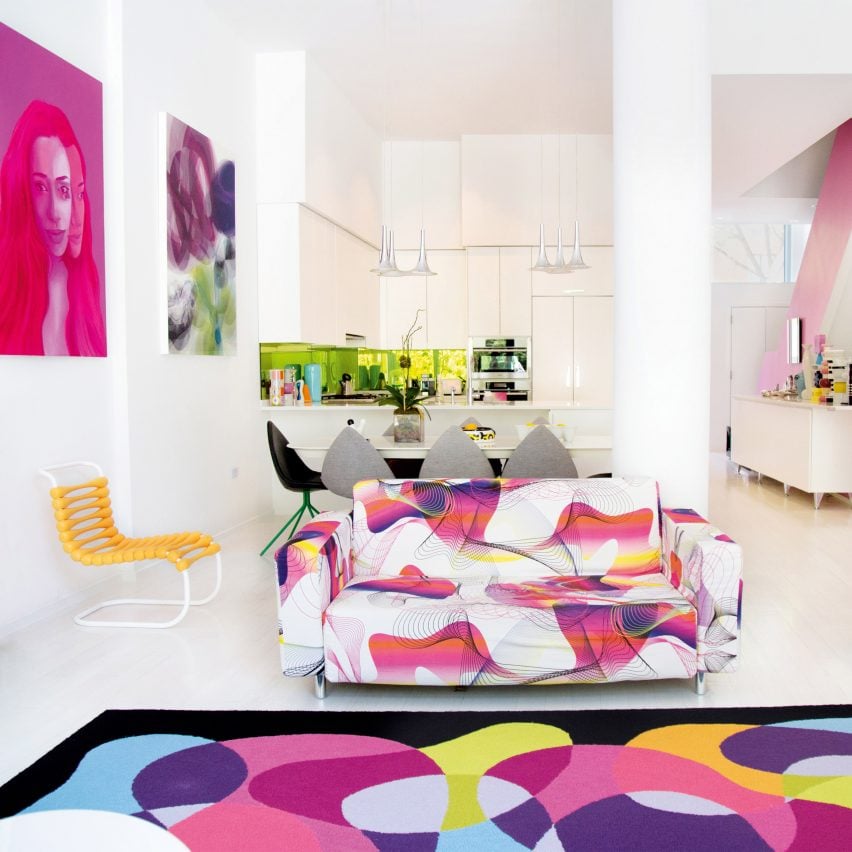
Rashid Residence, USA
This gallery-like kitchen and dining room forms part of industrial designer Karim Rashid's four-bedroom townhouse in Manhattan.
White walls and floors form a backdrop to bright finishes that range from a luminous lime-hued backsplash to a multi-coloured carpet that echoes Rashid's joyful approach to design.
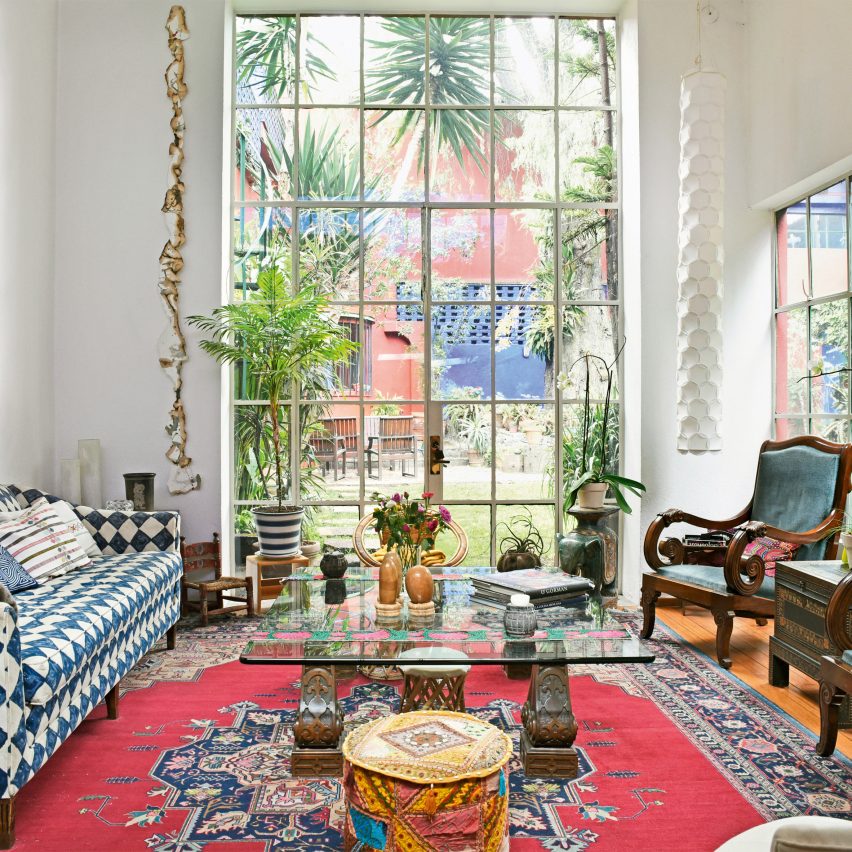
Juan O'Gorman House-Studio, Mexico
Located just outside Mexico City is the home of the late architect, painter and muralist Juan O'Gorman, which he built for himself in 1933. It is positioned close to La Casa Azul, the dwelling he created for Diego Riviera and Frida Kahlo.
Today it is owned by artist Paulina Parlange, who has teamed its bright, light-filled finishes with an eclectic mix of furnishings, murals and patterned textiles.
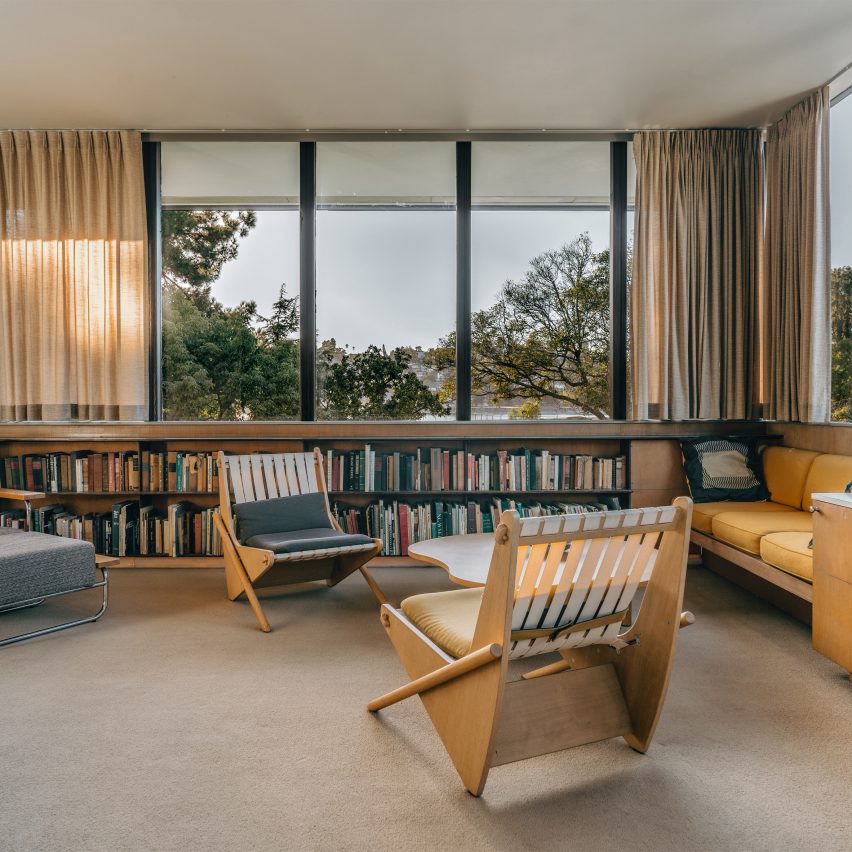
Neutra VDFL Research House, USA
Large glazed walls that frame views of a neighbouring reservoir line the Neutra VDFL Research House – the former home of modernist architect Richard Neutra.
Lubell selected the dwelling for the book in recognition of its innovative, mid-century design, which he describes as "strikingly ahead of its time".
Photography is courtesy of Phaidon.